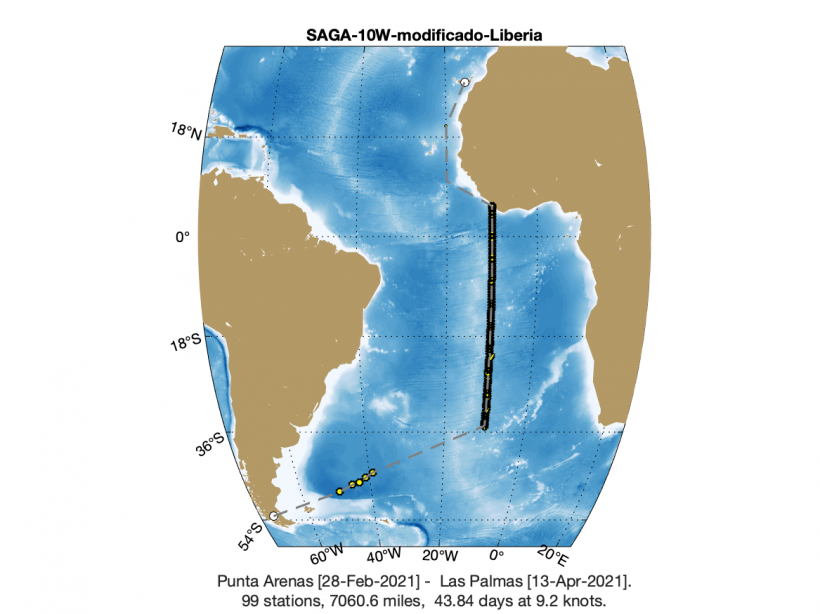
ICTA-UAB researchers are about to sail on the B/O Sarmiento the Gamboa to participate in the oceanographic campaign SAGA10W in the South Atlantic. This expedition is one of the few organized in Spanish research vessels in international waters since March 2020, after the onset of the Covid-19 pandemic. To this end, scientists have had to comply with strict sanitary measures. This includes solitary confinement in a hotel for 3 weeks, and several PCR tests before departing on 7th March from Punta Arenas, Chile. The campaign is due to end in Gran Canaria on 12th April.
ICTA-UAB scientists’ goal is to study the deposition on the ocean and their fate to the sea floor, of the emissions of wildfires from Africa and South America. The research is conducted under the framework of the European Research Council (ERC) project PALADYN, whose aim is to study changes in tropical climates in the most populated regions of the planet. PALADYN scientists are developing an innovative palaeoclimate reconstruction approach based on the study of carbon from wildfires (pyrogenic carbon) in deep ocean sediments derived from savannah and grassland fires in the tropics. PALADYN participants from ICTA-UAB in SAGA10W include Nina Davtian and Oriol Teruel, and the PI of the project and ICREA researcher, Antoni Rosell. They will collect aerosol and water samples, the latter at different kilometres of depth in the ocean, to study their contents on wildfire emissions.
PALADYN scientists’ participation is part of a collaboration with the SAGA project led by Alonso Hernández and Josep Lluís Pelegrí from the Universidad in Las Palmas de Gran Canaria, and the Institut de Ciències del Mar, respectively. Their aim is to study the Atlantic Meridional Overturning Circulation (AMOC) in the South Atlantic Ocean. This circulation system is part of the so-called global conveyor belt that influences the climate globally by redistributing heat in our planet. Recently, it has been reported to be slowing down, to a minimum that is unprecedented in over a thousand years (Caesar, L. et al. Nat. Geosci., 2021). Improved understanding of this slowdown is urgently needed. The SAGA project will contribute to resolve which components and pathways of this global circulation system have altered. The PALADYN project will also contribute to understand the dynamics of this system by tracing the transport pathways of pyrogenic carbon in the global circulation conveyor.